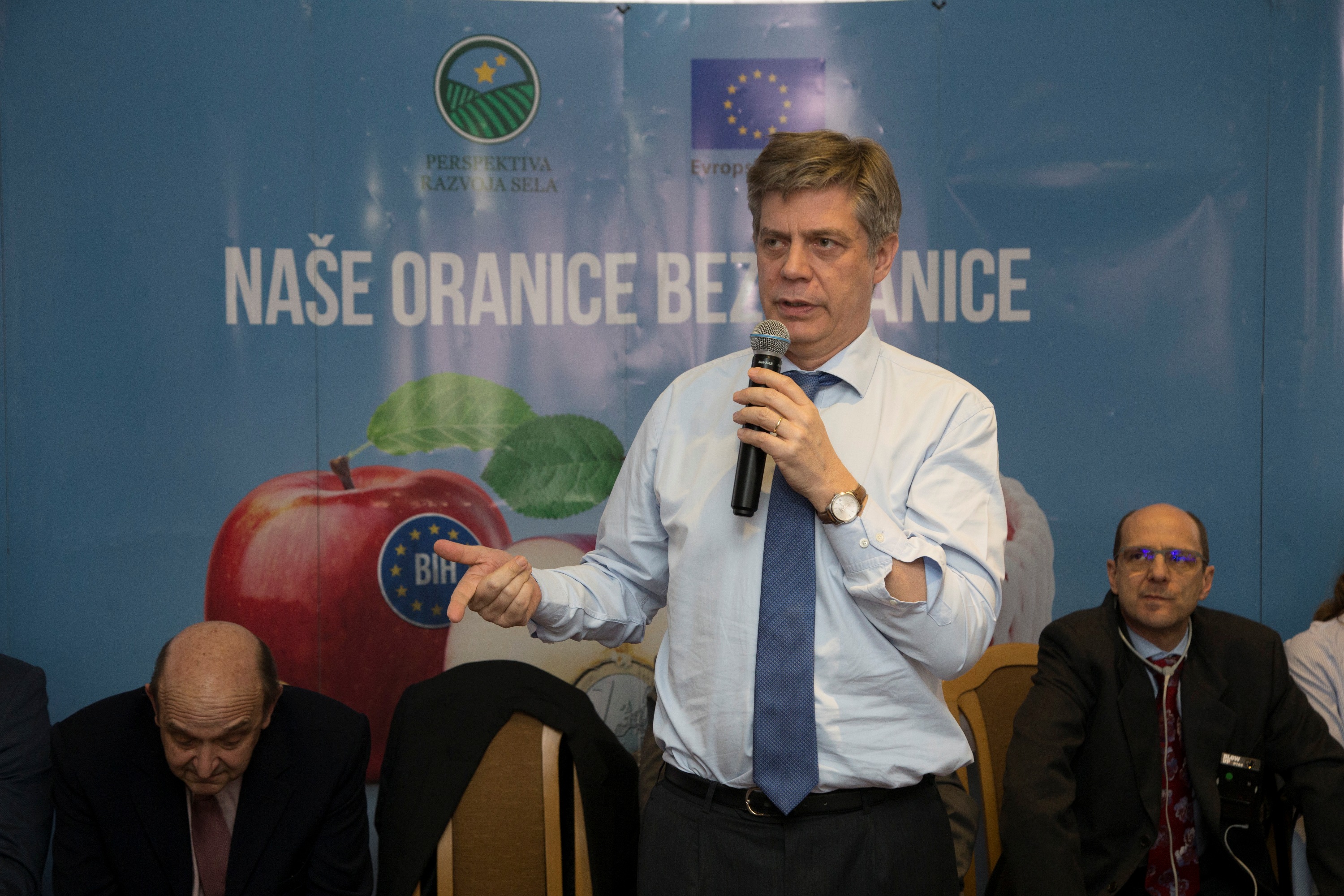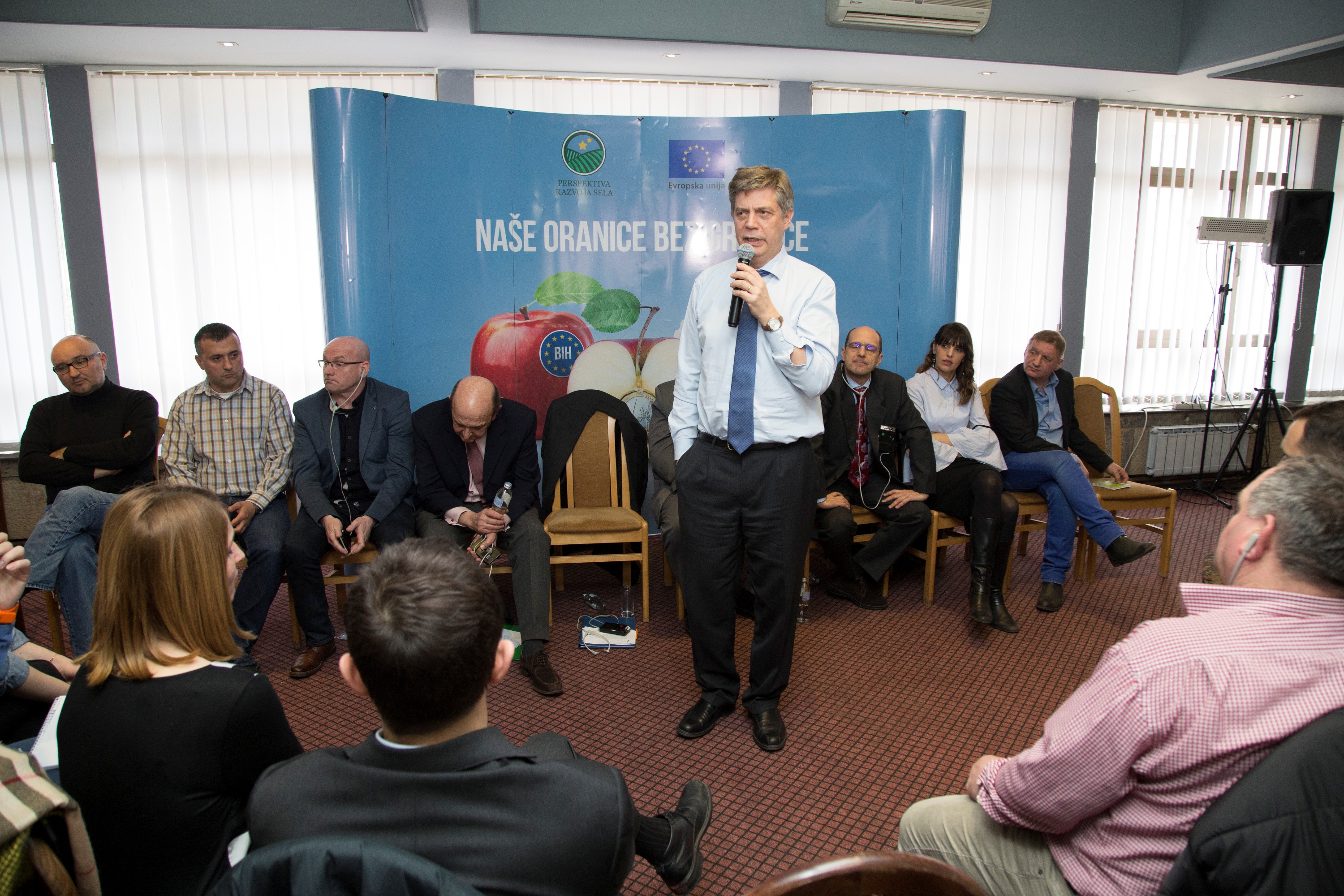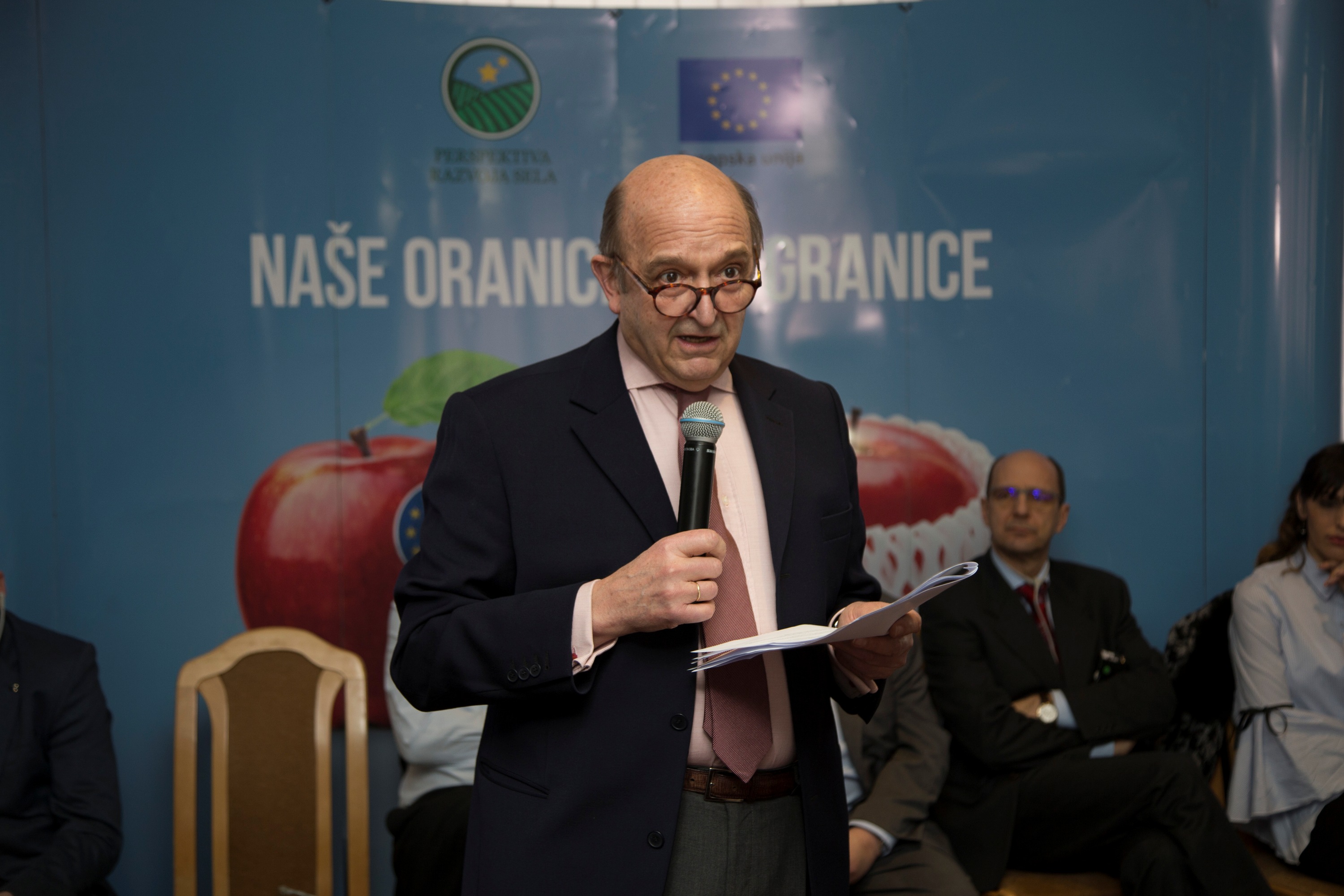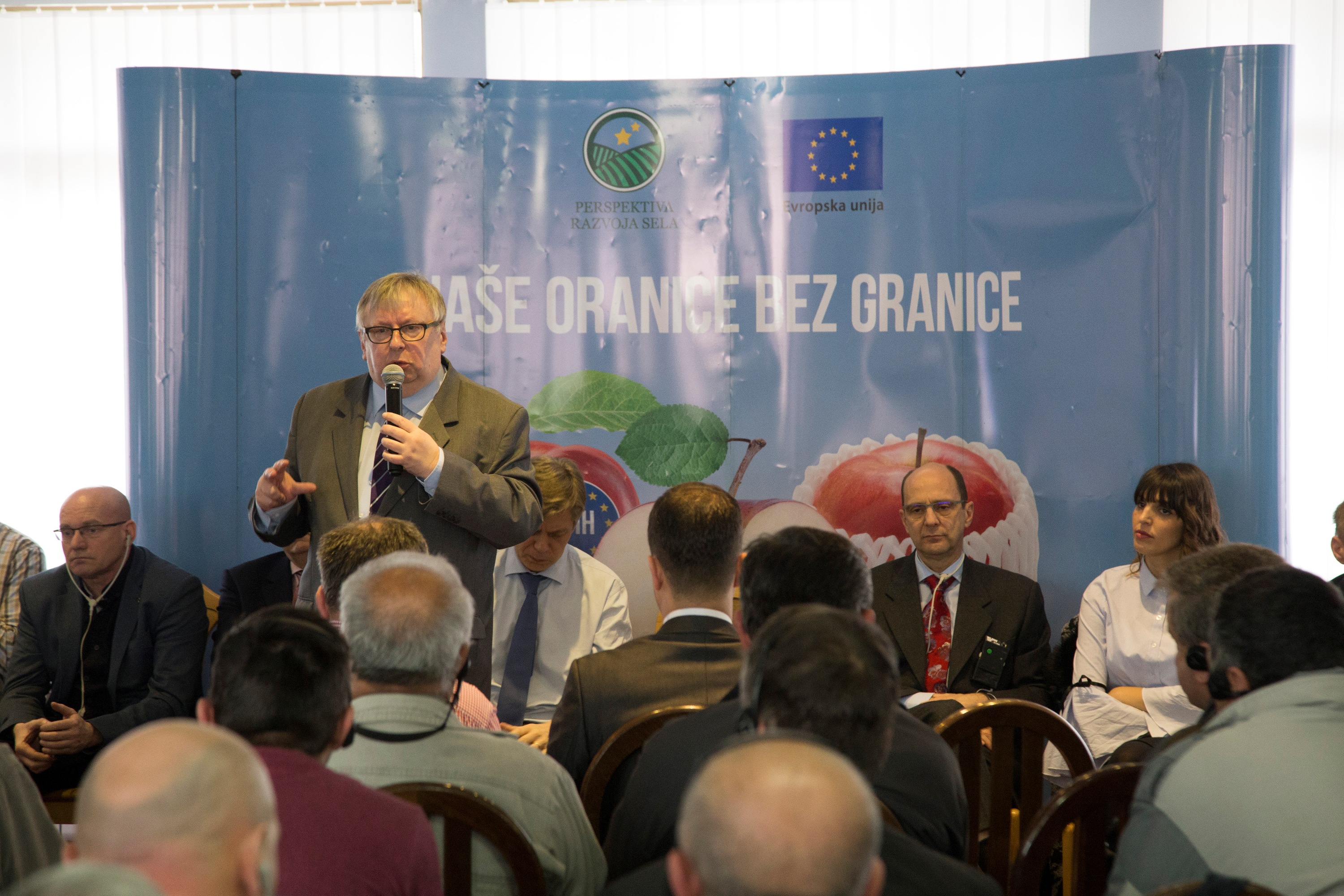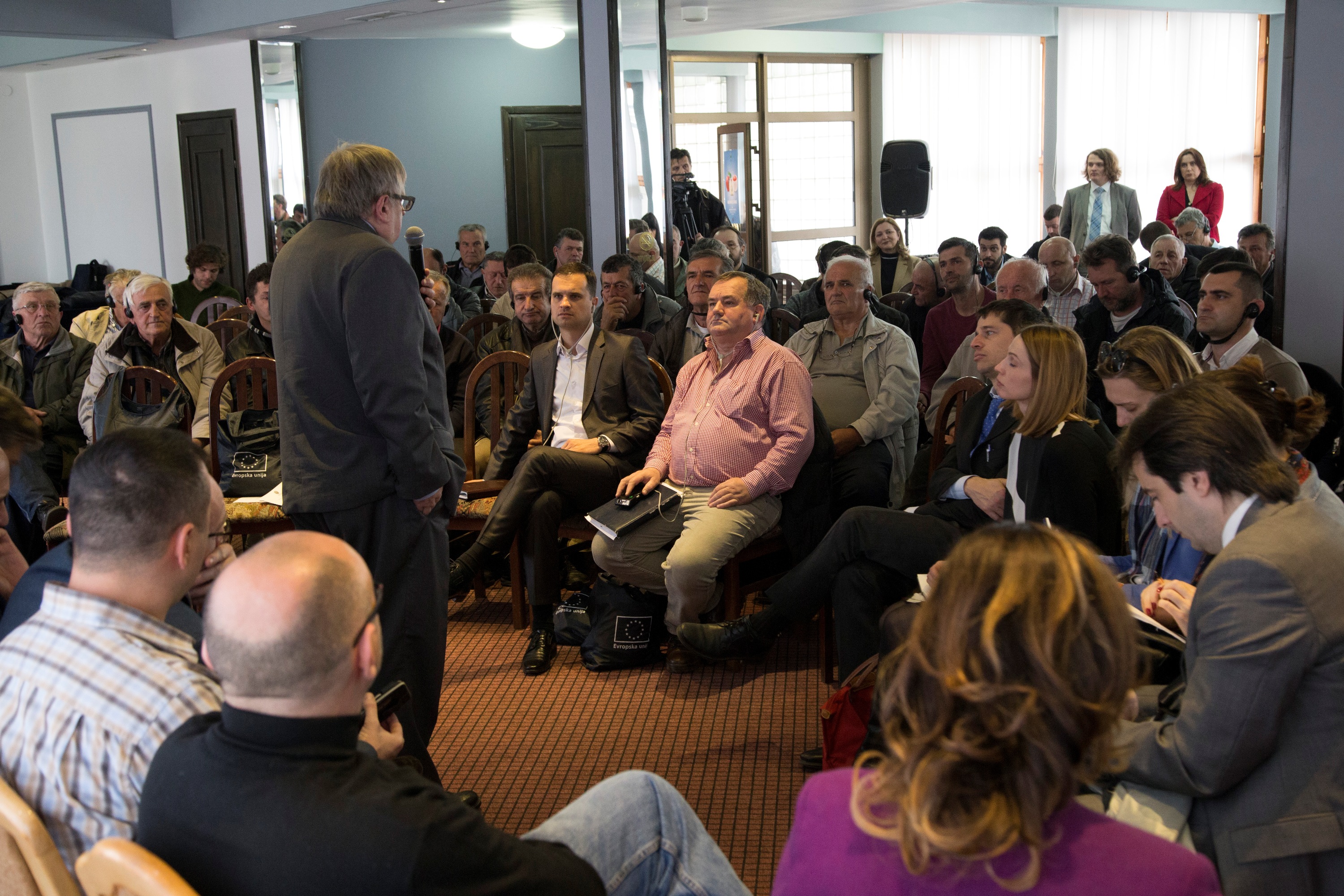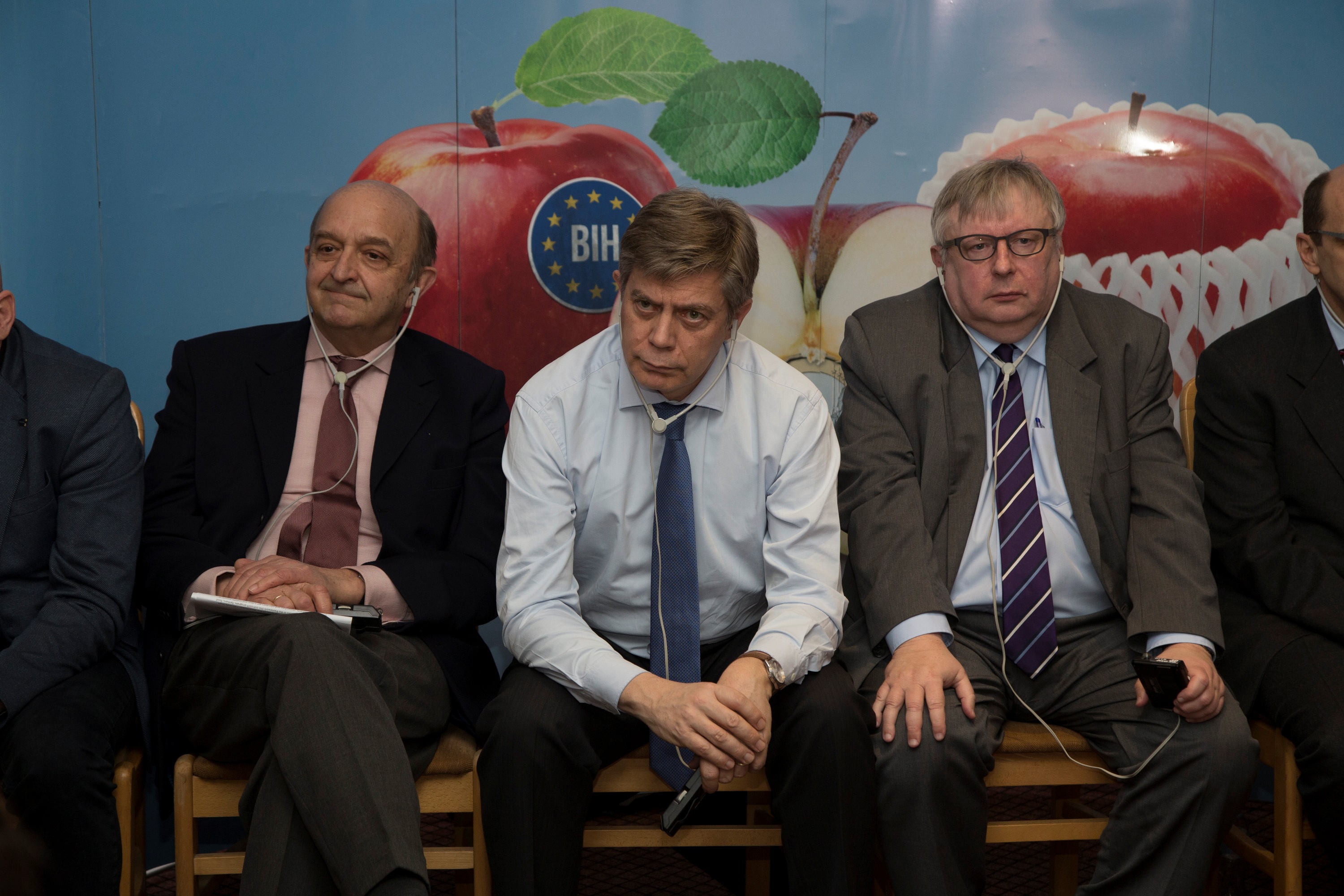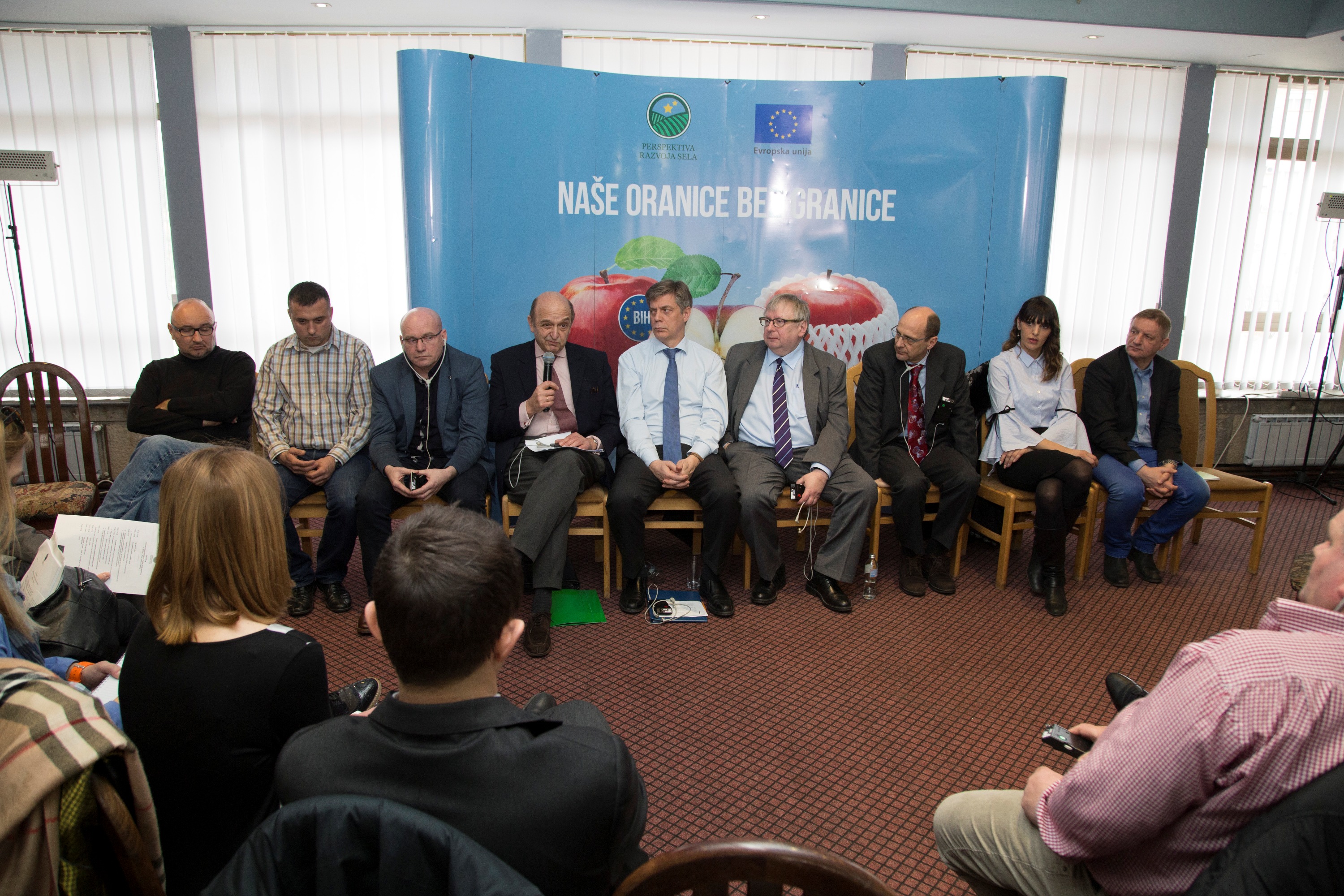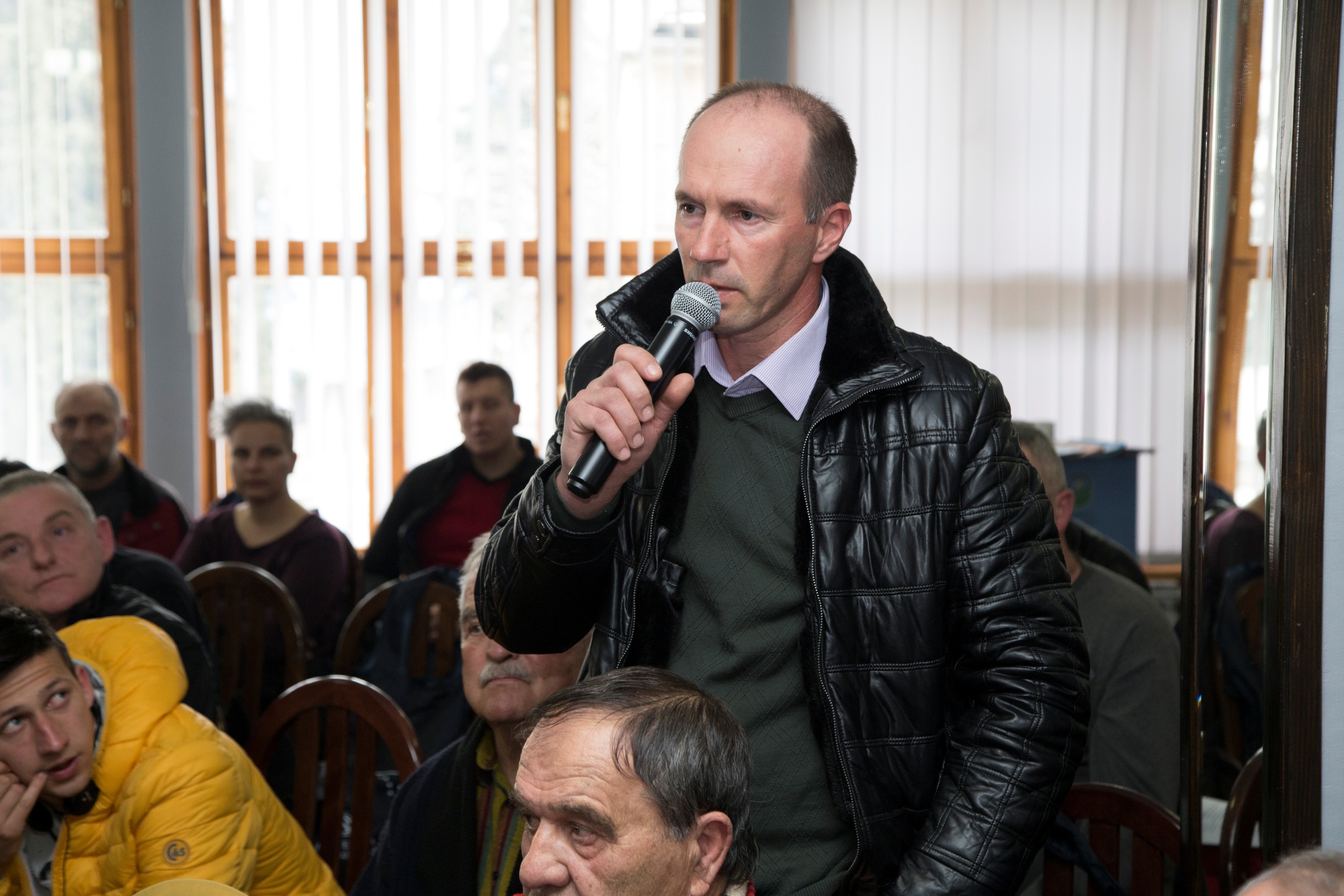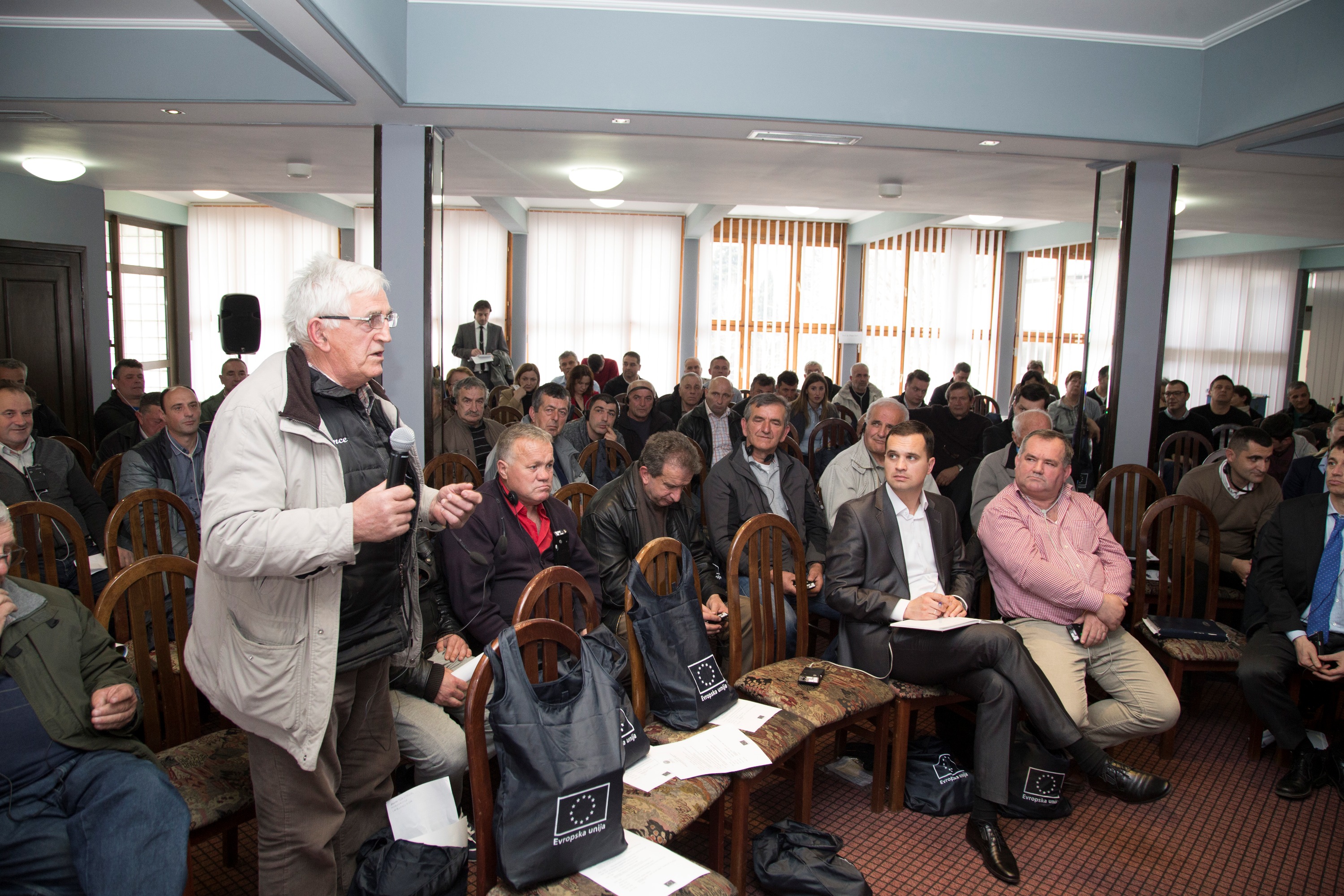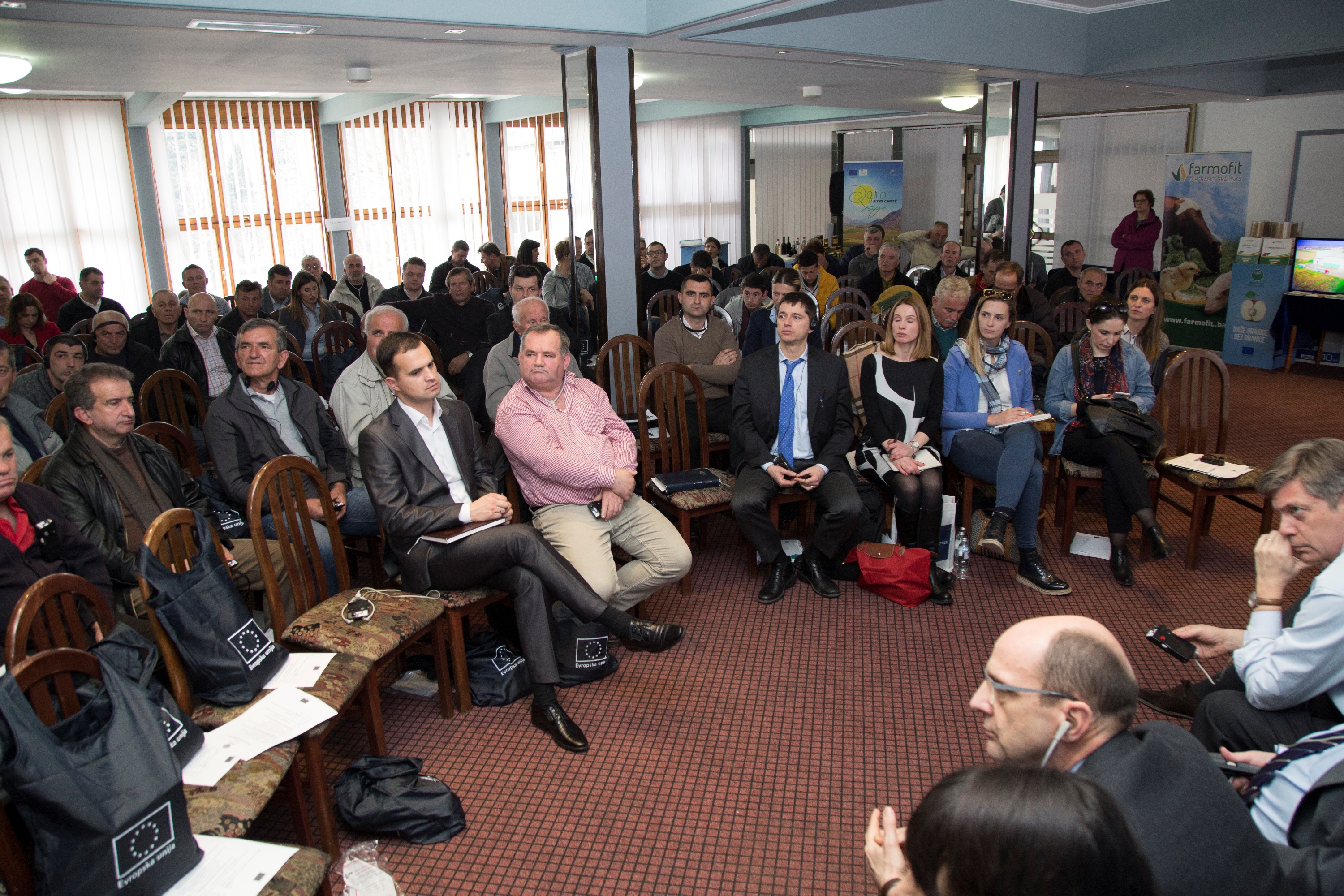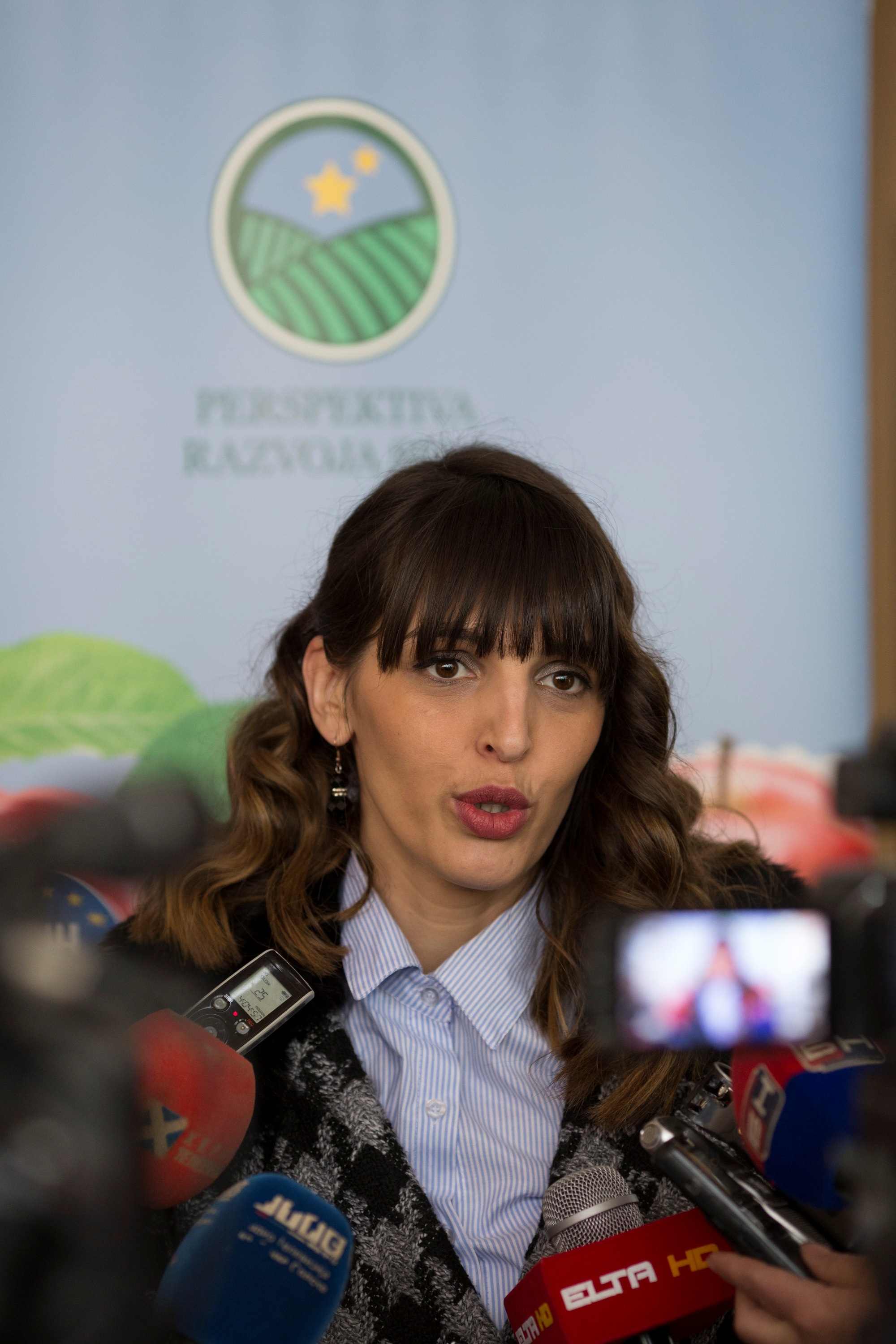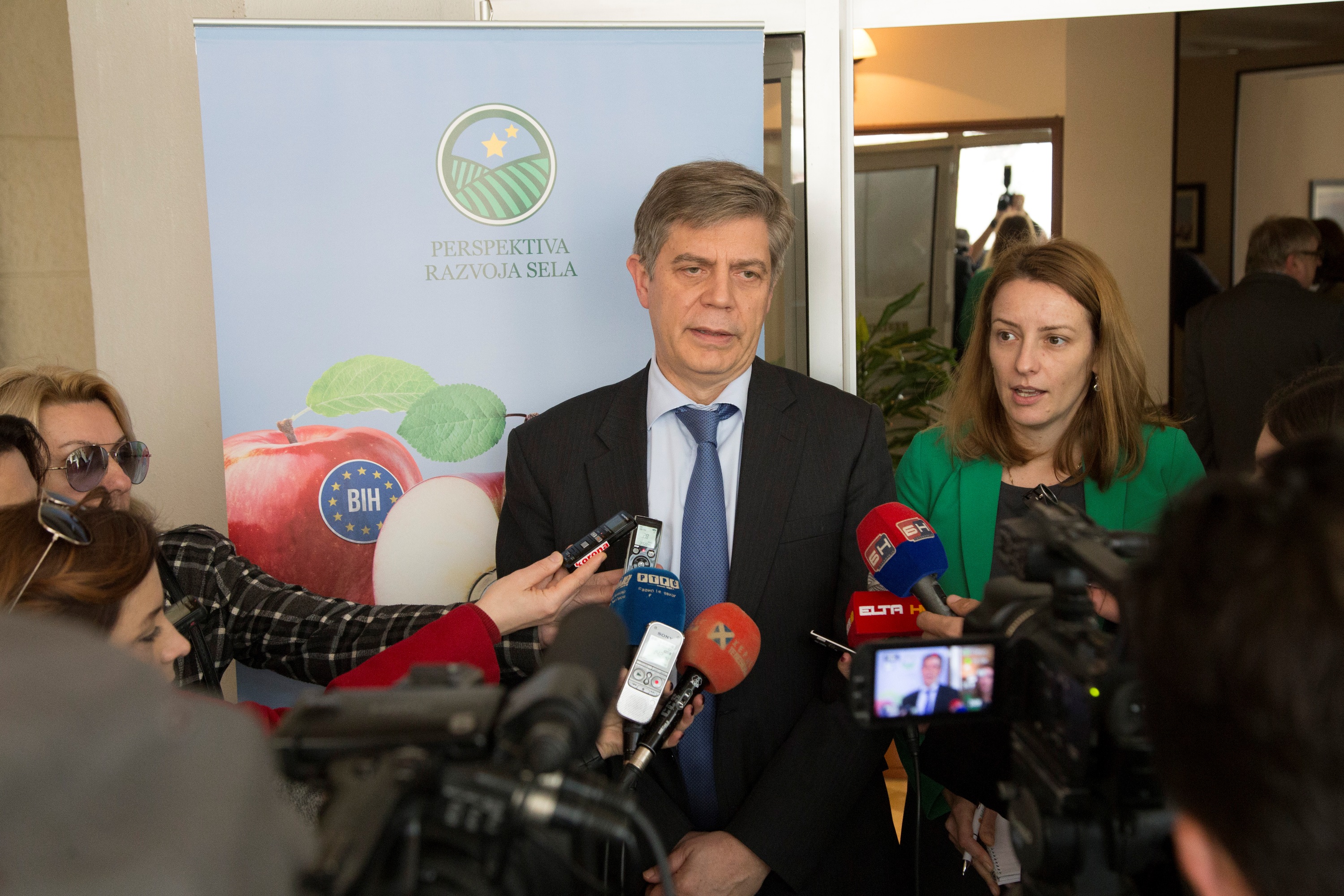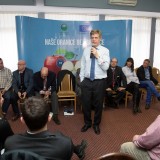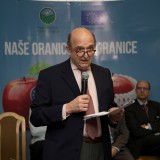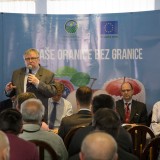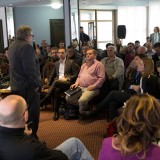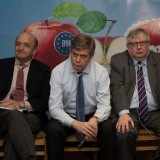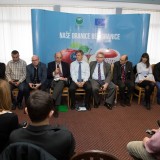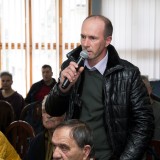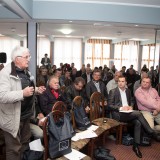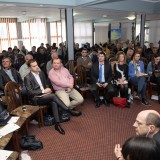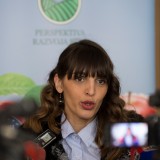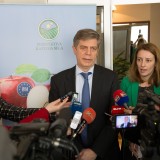The forum held in Trebinje on 23 February marked the completion of the project on the development perspectives of BiH agriculture implemented by the Office of the European Union Special Representative in Bosnia and Herzegovina (EUSR).
Ten successful forums held across BiH brought together more than 1,500 agricultural producers who discussed ways of improving their production with representatives of the EU and domestic, regional and international experts.
“The EU market is very competitive, but the European Union also offers numerous development opportunities for the agrarian sector. In order to access these opportunities, farmers need to apply European standards in their work. Start preparing for the EU right away,” said the Head of the EU Delegation in BiH and EU Special Representative, Ambassador Lars-Gunnar Wigemark, once again stressing the importance of adopting a country-wide strategy for agriculture and rural development.
The forum in Trebinje was also attended by the Dutch Ambassador to BiH Jurriaan Kraak, and the Polish Ambassador to BiH Andrzej Krawczyk who related the experiences of their countries.
“The EU and its member states will continue to assist BiH, but you need to have a single strategy in order to access EU funds,” said the Dutch Ambassador Mr Kraak, pointing out that BiH has very good natural potential for developing sustainable agricultural production.
The Polish Ambassador spoke about the successful transformation of his country’s agriculture sector through the EU accession process.
“It is our duty to share our experience with other countries. Our exports increased considerably after we joined the EU. Most of the work needs to be done in the pre-accession period,” said Ambassador Krawczyk.
One of the main messages of the forum also concerns the need for farmers to unite in order to strengthen their economic position. A regional expert involved in the project, Jovica Jakšić from the Independent Farmers’ Association of Serbia pointed out that agricultural producers must make a joint stand both on the market and when addressing their demands to the institutions.
Another expert on the project, Danka Perović from the Ministry of Agriculture and Rural Development spoke about the experience of Montenegro, stressing the importance of registration for farmers, which enables them to access the subsidies and benefits of EU pre-accession funds.
The forum participants used this opportunity to pose questions to the experts and representatives of the EU regarding the effect of European integration on agricultural development in BiH, as well as the production standards they should be applying.
The forum was followed by an informative-educational fair was featuring displays by the USAID/Sweden project FARMA II, HELP BiH, as well as the Žepče Association of Entrepreneurs and Employers (UPIP) and the Farmofit – Rapić feed factory from Gradiška.
The implementation of this project was supported by Vesta Group from Tuzla and the Aquarius marketing agency from Banja Luka.

